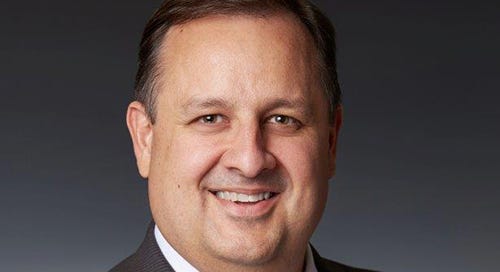Former U.S. Office of Government Ethics director: 'There is nothing resembling government ethics left in the United States government'
Walter Shaub to journalists: 'The current administration has shattered all semblance of government integrity in the federal executive branch'
This morning, former U.S. Office of Government Ethics Director Walter Shaub, whose service overlapped in a most turbulent fashion with the earliest part of President Donald Trump’s first term, sent an email to news reporters who’ve remained in touch with him in the years since he left public service. (Read about/watch a panel discussion I hosted in 2017 with a then-recently resigned Shaub and three other people you might recognize.)
Shaub’s message to us today includes an assessment of the state of government ethics during Trump’s second term. In short, Shaub says there is “nothing resembling government ethics left in the United States government” at all.
It’s some rather dark stuff that also details some of Shaub’s future plans. Read Shaub’s message for yourself:
I truly respect what you do as journalists in these dark times, with authoritarianism eclipsing democracy both at home and overseas.
I’ve been deeply engaged in projects directly related to defending democracy, and I haven’t always had the bandwidth to respond to journalists. Although it’s no longer part of my job duties to talk to the media, I feel it’s extremely important to help your work whenever possible. Unfortunately, these projects have had me at maximum capacity most of the time these days, and I rarely am able to find time to respond to press inquiries.
My focus has largely shifted away from government ethics for one simple reason: there is nothing resembling government ethics left in the United States government. The current administration has shattered all semblance of government integrity in the federal executive branch, both with its unprecedented firing of the director of the Office of Government Ethics and with the shocking misconduct of the president and his appointees. Congress has failed to ban its members from trading stocks. The Supreme Court’s justices have accepted gifts, failed to recuse from cases when needed and hawked books for personal profit. To say only the wreckage of a government ethics program exists would be to exaggerate what has survived. There remain only dust and ashes of a program that, while never strong enough, represented a genuine effort to instill trust in government. There is no basis for any trust in the United States government at this point.
For that reason, I have stopped endeavoring to keep abreast of the evolving conflicts of interest of individual members of the Trump administration, including the president. Reviewing their personal financial disclosure forms and evaluating their conflicts of interest has felt to me like trying to figure out what happened to a passenger sitting in seat number 47A on a commercial jet that slammed into a mountain and disintegrated in a ball of fire. No one made it.
For that reason, I’ve focused on supporting litigation efforts to challenge the aggrandizement of executive power at the expense of the legislative branch and other safeguards against autocracy. It would be a mistake to treat the current threat to democracy as anything less than a fascist movement that seeks to emulate the corrupt leaders of countries like Hungary and, eventually, Russia. Dissent has already become risky and, in some cases, dangerous. That is the true measure of how far we’ve backslid from democracy.
I am glad many of you are highlighting the individual ethical failures of members of the administration. It is important to show the American people how government power is being misused for personal gain. As for me, I’ve concluded that my particular set of skills is more usefully put to the work of challenging the consolidation of presidential power wherever I can. That effort has left me little time to focus on the lack of government ethics.
Again, I apologize for having fallen so woefully behind on responding to you, especially those of you with whom I’ve had long professional relationships. You should feel free to send me messages whenever you think I can be of help. In all honesty, I don’t anticipate having more bandwidth to respond anytime soon, so please don’t take a lack of response personally. I’ll support your crucial work whenever I can, even if that’s only rarely.
I wish you the best with your work and your safety.
Walt



